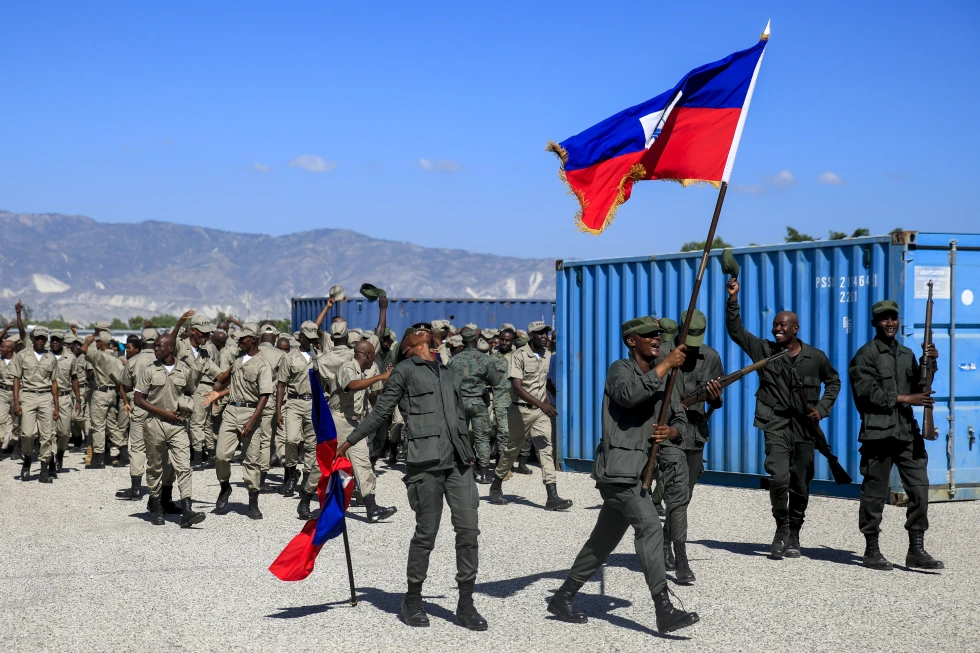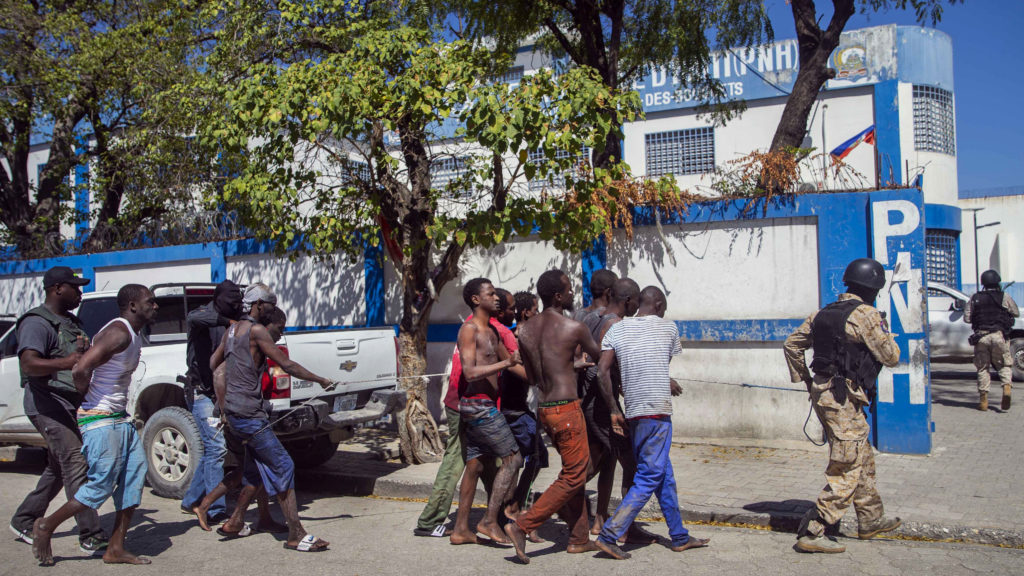Thousands of young Haitians are flocking to join the country’s military, viewing it as a rare opportunity for employment and a chance to combat the widespread gang violence plaguing the nation. The recruitment drive comes as Haiti’s government seeks to rebuild and expand its once-disbanded armed forces to address the escalating security crisis.

Maurenceley Clerge, a 21-year-old smartphone repairman, exemplifies the eagerness among Haiti’s youth to enlist. “It’s the moment I have been waiting for,” Clerge said, standing in line with hundreds of other applicants under the scorching sun. “I want to serve as a citizen of this country and also to move up and upgrade my life.”
The recruitment announcement, broadcast over local radio, has resonated deeply in a country where approximately 60% of the nearly 12 million inhabitants earn less than $2 a day. Inflation has soared to double digits in recent years, exacerbating the economic hardship.
Samuel Delmas, 20, another applicant, expressed his motivation despite the risks involved. “I have always wanted to be useful to my country,” he said, recounting how gang violence forced his family to flee their home two years ago. “I want to protect citizens who are on the run like me.”

While the government has not disclosed specific recruitment targets, documents from the Defense Ministry indicate that at least 3,000 individuals were selected in mid-August for further evaluation. If all are hired, it would more than double the force’s early 2022 strength of 2,000.
The military’s resurgence marks a significant shift in Haiti’s recent history. The armed forces were disbanded in 1995 following a series of coups and human rights abuses. The decision to demobilize the army “proved to be one of the most catastrophic decisions in the country’s history,” according to Michael Deibert, author of two books on Haiti. He argues that this created a security void filled by politically-aligned gangs.
The army was reinstated in 2017 by President Jovenel Moïse, who was assassinated in July 2021. Since then, it has played a limited role in combating gang violence. However, with the recent appointment of Gen. Derby Guerrier as the new armed forces chief and the massive recruitment drive, the military appears poised for a more prominent role in restoring peace.

Prime Minister Garry Conille has pledged to modernize the military, investing in technology, infrastructure, and improved conditions for soldiers and their families. “A soldier … whose family is safe and well cared for is a soldier who is more determined and focused,” Conille stated.
The expanded military is expected to work alongside Haiti’s police force and a UN-backed mission led by Kenya, which has already deployed 400 police officers to Haiti. Additional personnel from countries including Benin, Chad, and Jamaica are expected to arrive in the coming months, forming a total foreign contingent of 2,500.
As Haiti grapples with unprecedented levels of gang violence – with over 3,200 killings reported from January to May and more than half a million people displaced in recent years – the military’s expansion represents a critical component of the government’s strategy to restore order and provide hope to a beleaguered population.
For young Haitians like Emerson Celadon, a 25-year-old mechanic who has applied to join, the army offers not just a job but a vision for a better future. “I would love to see the country like how I heard it was back in the day: a Haiti where everyone can move around freely, where there are no gangs, where everybody is able to work,” he said.
As the recruitment process continues, the international community watches closely, hoping that this reinvigorated military can play a pivotal role in stabilizing Haiti and providing a path forward for its youth.



